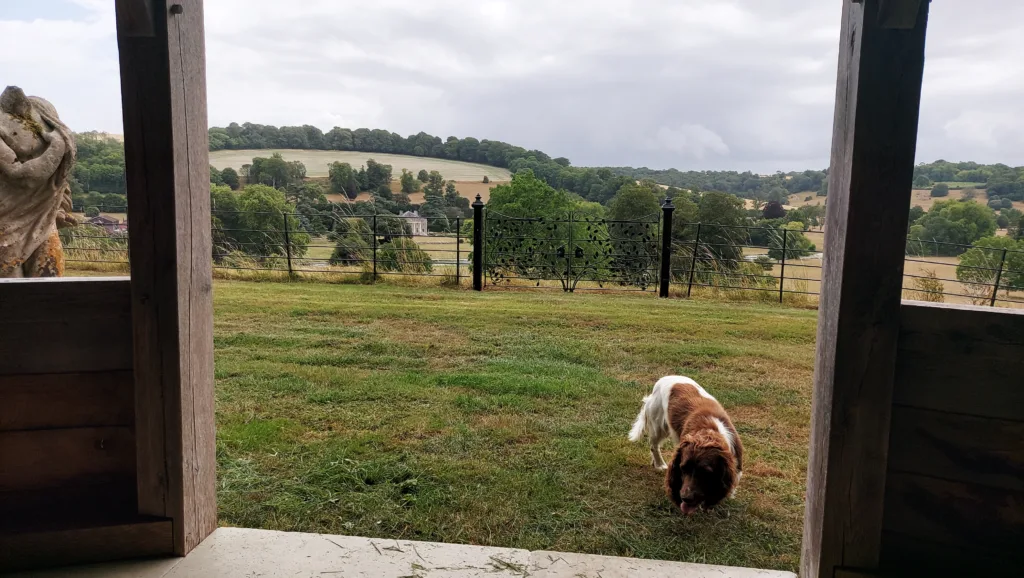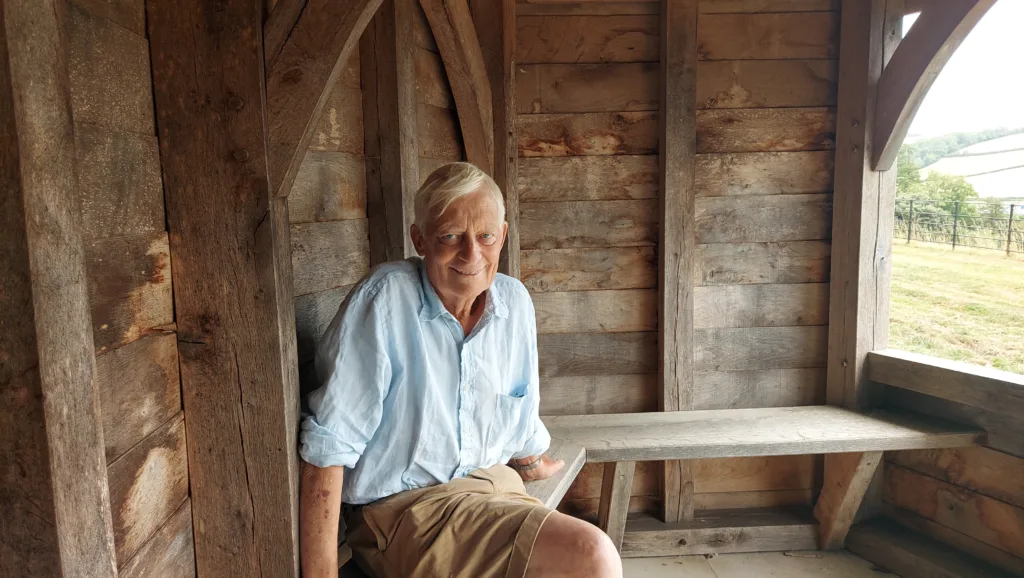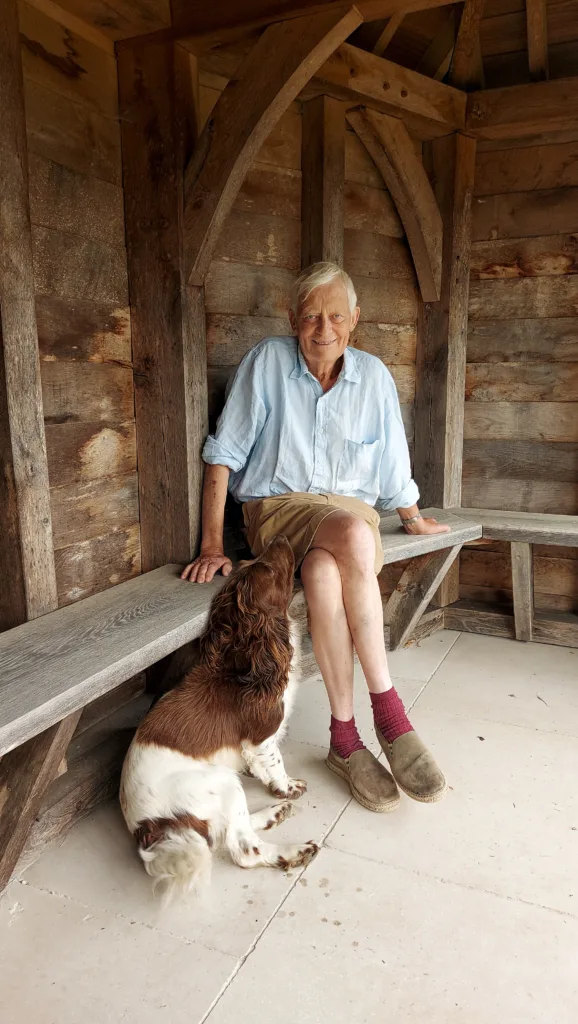Wessex Internet founder and rural champion James Gibson Fleming MBE says true service is just being part of something bigger than yourself
He didn’t expect an MBE. And he’s quick to say he didn’t earn it alone. But for anyone who’s crossed paths with James Gibson Fleming – in a hospice boardroom, a fibre field trench, or a Remembrance Day service – the award probably came as no surprise.

The citation – “for services to rural communities in Dorset” – barely scratches the surface of a career that spans more than 35 years of voluntary work.
‘Of course it’s an honour,’ he says. ‘But it’s really a reflection of the people I’ve worked with – none of these things are done alone.
‘The thing is, my father died when I was 22, and I stepped into his shoes. The family has been here since 1781, and I rather just get dragged into stuff because people expect you to do it. But I’ve always been very happy to – I treat voluntary work and business work in the same bracket. I don’t count the cost of ‘pro bono versus paid’ or anything else. I think there is a duty, if you’re born lucky, to do what you can to help your local communities. I’ve always tried to do things where I felt I could make a difference. Not necessarily rattling a can, but more using my business acumen to make a place more effective and achieve more.’
Among his many roles, James spent 35 years on his parish council, chairing it for much of that time. At a national level he served on various country landowner committees in the 90s: ‘I think it’s important not to let any of these things get too much. I have always tried to avoid being chairman!’
For 36 years he has served as a trustee of the Talbot Village Trust, which gives away more than £1 million a year to good causes. He played a key role in establishing Cancer Care Dorset, and as chairman he oversaw its merger with Joseph Weld Hospice to form Weldmar Hospicecare Trust. ‘That was a really important moment,’ he says. ‘Two brilliant local organisations coming together to form something even better – a hospice charity with real strength and resilience.’
King’s representative
He explains that the merger wasn’t just financial, but deeply strategic. ‘It allowed us to create a single, unified hospice service for Dorset, with proper clinical governance, long-term planning, and the ability to recruit and retain high-quality staff. When you’re dealing with end-of-life care, that stability and continuity matters hugely.’
He served as Vice Lord-Lieutenant of Dorset for 14 years – first under Val Pitt-Rivers, then under Angus Campbell. ‘It’s a fascinating job,’ he says. ‘You get to represent the monarch at everything from Remembrance events to factory openings. There’s a lot of behind-the-scenes support too – helping charities apply for honours, for example. You are the King’s representative in the county, so it’s your responsibility to be there when a royal visit isn’t possible.
‘And it did give me the chance to see all corners of the county. You meet incredible people doing extraordinary things, often very quietly. That’s something I’ve always admired.’
Superfast villages
But arguably his biggest contribution to Dorset life has come through broadband. James founded Wessex Internet in 2010, out of a frustration that will sound familiar to many rural readers.
‘We couldn’t get internet to the farm office. So we got a couple of wifi dishes, pointed them at each other over a hill, and bounced a signal across. It worked. Then a neighbour asked if they could use it too. And another. And suddenly it wasn’t just our family and friends!’
What began as a wireless workaround quickly grew. ‘We started trenching fields, laying fibre ourselves. Because nobody else would. And we knew we didn’t want to go the usual route, following roads – that’s our advantage. We know how farmers feel about their land, and we built something based on respect for that.’

Rural resilience
Today, Wessex Internet employs more than 360 people and has brought fast, reliable broadband to more than 13,000 rural homes and businesses.
‘It’s not about the speed,’ James says. ‘It’s about the opportunity it brings. If you work from home, run a business, have kids doing homework … decent internet isn’t a luxury. It’s essential. Rural areas deserve the same chance as anywhere else. That’s always been the aim.’
James remains closely involved in farming too. ‘It’s my grounding,’ he says. ‘Whatever else I do, I’m a farmer. I love the land. And I think that rural resilience – that ability to find solutions, to get on and make something work – is central to everything I’ve done.’
The MBE, he says, was unexpected. ‘You get a letter saying you can’t tell anyone, and my first reaction was shock. Then you think about everyone who’s helped you get there. Because none of it happens in isolation.
‘It’s not something I ever set out to get. But I’m touched. And I hope it brings a bit of spotlight to the importance of rural communities – the need to invest, to innovate, to value what we have.
‘I’m incredibly proud of Wessex Internet – that’s what I’d like to be remembered for. It’s changed people’s lives.
‘And it’s not just what we’ve built, it’s how we did it – community first, always.’
He pauses for a moment, gazing out across the valley to Ranston, the house his family have called home since 1781.
‘But my passion is this place, you know. It’s about leaving it better than I found it – on my watch. And that changes with time. We aren’t the enemy of the countryside. I believe we’re its best guardians – its trustees.
‘If you’re lucky enough to live in a place like this, you want to give back. You have to give back. And I’ve always felt that if you’re in a position to help, you probably should.
‘That’s not service. That’s just being part of something.’
by Laura Hitchcock



